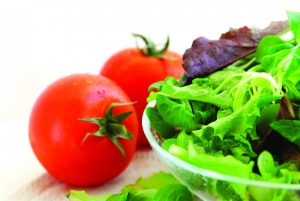
Making smart dietary choices for kidney disease is essential for improved health and kidney function.
Like they say, we are what we eat, and for people with kidney disease, it is vitally important that an effective dietary plan is implemented to decrease symptoms, including an upset stomach, pain, swelling and more. Additionally, sticking to a kidney-healthy diet might even slow down the development of the disease.
If you are providing care for a family member with limited kidney function, it is imperative to know the best and worst dietary choices for kidney disease.
What Dietary Choices Should Someone With Kidney Disease Consider?
Salt
High levels of sodium in the diet can result in fluid retention and high blood pressure, and can force the heart to work harder. Salt should be limited to at most 2 grams each day for people with kidney disease. One way to help is to stay away from serving foods with large levels of salt, such as:
- Canned foods
- Pickled foods
- Condiments such as soy sauce, ketchup, and barbecue sauce
- Nuts
- Chips, pretzels, and crackers
- Processed or smoked meats
NOTE: Pay attention to salt substitutes and “reduced sodium” foods, which in many instances are high in potassium.
Potassium
Potassium is a mineral, and is included in many different kinds of foods. Our bodies require potassium to keep our muscles working, but when someone is undergoing dialysis, potassium levels need to be examined very closely. Receiving too much or too little potassium can lead to muscle cramps, erratic heartbeat and weakness of the muscles. The doctor or dietitian can determine how much potassium is appropriate for the particular person.
Protein
Though protein is an essential nutrient, when the kidneys are not performing properly, excessive protein can build up in the blood. Individuals with kidney disease need to consume no more protein than what is required by the body. When treatment starts early, a diet low in protein combined with essential amino acids at ideal levels during each meal has been shown to prevent the need for, or at least push back the need for dialysis, and in fact could even reverse some kidney problems.
Vitamins and Minerals
Individuals with kidney disease may require extra supplements of vitamins to lessen some of the typical side effects of kidney failure, like bone disease or anemia, but they should only be used if directed by the doctor.
For more resources on caring for someone with kidney disease, or to discover how a professional in-home caregiver can improve health and quality of life, contact Advanced Home Health Care’s senior home care experts at 800.791.7785. We’ll be happy to schedule a complimentary in-home consultation at your convenience to answer all of your questions and provide you with the information you need.

